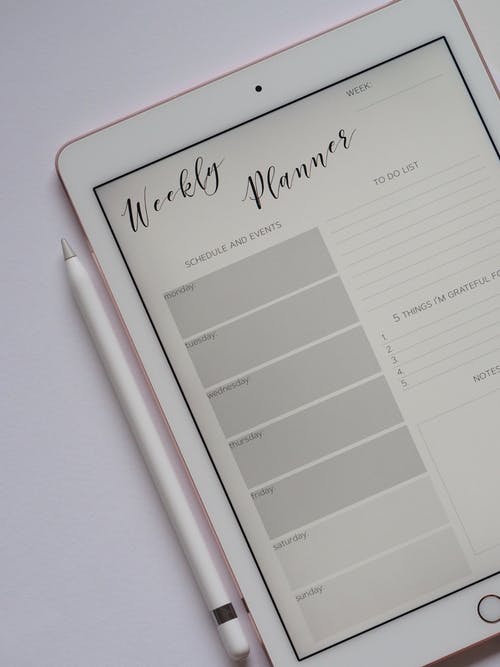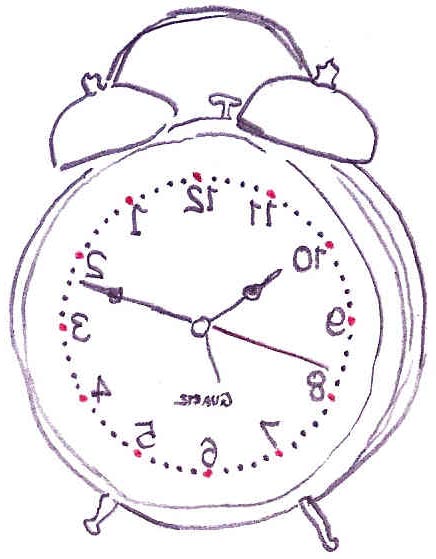
May 11, 2021
There is a common notion that retirement planning is all about the money. That view is only half of the story. The other half is about planning your retirement activities so that you have a high-quality retirement life.
I’ve been constantly surprised about how retirement is turning out in both of those dimensions – the money and the activities.
The money part of retirement planning focuses on saving and growing the savings so that there will be enough money to live off when you stop working. When retirement arrives, you reconfigure your investments to provide a retirement income.
I too have done that planning, and I’ve counseled my financial planning clients to plan in similar ways. Probably my biggest surprise was the miracle of compound growth. Einstein identified it as one of mankind’s greatest inventions. I knew it in theory, but the experience felt like a miracle. My investments started out on a small scale when I was in my 20’s. I stuck with it and watched my money grow into something quite substantial.
Now I’m taking a retirement income. In just the first 1½ years of retirement, I’ve witnessed considerable fluctuations in the value of my investments, much more than I’d anticipated. When Covid 19 hit, values plummeted, then recovered, and are now at all-time highs. At the same time much of my spending changed. It came to a halt because of travel restrictions and quarantines. I anticipate that there can and will be many unpredictable changes in the future. I continue to plan but will adapt my spending as needed.
There is the famous expression – Man plans, and God laughs. But where would I be now if I hadn’t planned my savings earlier?
The other half of retirement planning is about the quality of activities. It addresses lifestyle and goals.
I had planned a retirement life of speaking, hobbies, and service to others. I retired on January 1, 2020, just a few months before Covid 19 happened. Things didn’t go as planned, so I had to make many adjustments to my retirement activities.
This evolution of my retirement activities has also been surprising to me. My first reaction was to notice all of the activities that I couldn’t do. But if anything, my retirement activities have already evolved into a much better lifestyle than I had anticipated. My planning gave me the start and direction. Without it, I know that I would have floundered. As circumstances changed and opportunities arose, I reevaluated and modified my plans.
In my retirement I have much more control over my activities, time and other resources than I had before. I anticipate further changes in the world and in my own situation. I expect to modify my plans as needed. My goal is to continue to explore, grow and contribute as I age.
What can you do to improve the quality of your retirement activities?

May 4, 2021
Being connected with others is hugely important during retirement. The opposite of connected is lonely, which is no fun, plus it’s dangerous to your physical and mental health. In fact, loneliness is as bad for your health as smoking two packs of cigarettes a day.
Work relationships, both colleagues and customers, disappear upon retirement. Because of the aging process, eventually you may have more losses from contemporaries dying, moving away, or taking care of family members and not having as much time for you.
At any age building and maintaining relationships requires intention and energy. Otherwise, entropy takes over – things fall apart.
There are a number of strategies you can use to form and strengthen your relationships in your post-work stage of your life.
- Feed your existing relationships. If they’re meaningful, they are worth investing your time. Now that I and many of my friends are vaccinated, I’m starting to get together with them – in person. I love it.
- Find existing groups to plug into. There are so many to choose from. They include community centers and faith groups. There are even whole communities – 55+, independent living – that build a variety of activities into a weekly schedule.
- Pursue your favorite activities. There are so many that you can do with others. Some examples are sports/exercising, card games, eating out (when you’re comfortable doing that), and clubs of all kinds (books, gardening, etc.)
- Cherish what you’ve learned about Zoom. You can meet with people far away without having to travel. You can even reconnect with people from your past this way.
- Meet random strangers. I have ventured outside my comfort zone and now do this routinely. I strike up conversations while walking around town and when I travel to far-away places, pandemic permitting.
Some of these may take some courage to start connecting with others. I find that not all interactions work out as I hoped, but some work out even better.
How do you want to connect with others in your retirement life?

Apr 18, 2021
I’ve seen two situations in the retirement area where people are stuck. One is the transition into retirement when someone holds back from initiating the process. The second is post-retirement when the transition has not worked out very well. The retiree is not happy but doesn’t know how to make retirement better.
First, consider Ray, a successful consultant, whose work is helping key executives in some major US corporations with their business planning. He knows that, if he wants, he can continue working, as he has been for many more years.
Ray has been thinking about retiring for a long time. He feels burdened by the stresses of work more and more, and he has enough money to retire. So why doesn’t he retire? He doesn’t know what he would do with his time. He’s thought about some home projects and travel, but they don’t seem enough. Why give up his exciting work? Retiring to him seems like jumping off a cliff – into an abyss.
Then there’s Eddy, who ran a small but successful publishing firm. He got an offer to buy his business that was too good to turn down. He took the offer. He looked forward to a retirement life of golf, travel, and visiting grandchildren. Eddy’s retirement started out great. He’s now two years into it. He enjoys his activities, but he feels like there’s a hole in his life. He’s not sure how to fill it.
Both Ray and Eddy are stuck and upset with themselves. They want some change but don’t know how to do it. They know that they’re smart and should be able to figure out what’s next. But it hasn’t happened. It feels like a fog has settled over their heads. And they see other less capable people who seem to have figured this all out and are having a great time.
Ray and Eddy have been through many transitions in their pasts, including into new jobs or careers. Some may have been more straightforward than others. Some transitions they did by themselves, others they got some help from teachers or coaches.
Ray and Eddy will remain stuck unless and until they do something different. If they’re not making much progress on their own, then they could get some help from professionals.
In my new profession of retirement coach, I work with people like Eddy and Ray to help with these very issues. My goal is to help make the transition into retirement much easier and result in a higher quality retirement.
Are you stuck in your retirement transition?

Apr 6, 2021
Starting at around age 50 we begin to think not only how old we are, but how much time we have left. Our life expectancies from birth are to age 75-80, which translates to an age 65 retirement length of 10– 15 years. However, if you’ve made it into your mid 60’s, your average life expectancy will actually be into your late 80’s. So, you could have 20 – 25 years of retirement.
Even that’s not the whole story. If you’re managing your health reasonably well and have the resources to get good healthcare, then your life expectancy is even greater, and your retirement could be even longer.
If you could count on having all of that time available, with mental clarity and good health, then decisions you make about what you want to do with your time would be far easier. But there is no warranty stamp. There’s substantial uncertainty. I’ve witnessed some friends dying and others recovering, both unexpectedly.
I retired late, because I was enjoying my work and didn’t want to quit. But I eventually did. When I was no longer working full-time, I had to decide how to use my “extra” time. Yes, I had a bucket list comprised primarily of travel destinations. Should I rush through it and travel while I still could, before being overcome by health issues?
That thinking motivated me to plan and do some very nice trips, before Covid-19 limited the possibilities. I realized, however, that I would never complete my list of travel destinations. I hear of new places from fellow travelers, frequently. I’ll never run out. And I want to return to some of my favorites. So I’ve chosen a fast but not desperate pace of travel.
In addition to travel I’ve chosen two long-term retirement activities – starting a new career as a retirement coach and learning cello. I knew that each of these would take considerable time to develop into serious ventures.
- My new retirement coaching career has turned out to be more different from my previous financial planning than I expected. I find that I’m often going out of my comfort zone and learning new skills and bodies of knowledge. It’s challenging. My goal is to have a substantial positive impact on others through the part-time work I do. It’s working.
- I loved listening to cello for decades before I decided to play it. I started my lessons a few years before retirement, knowing that it could take a minimum of 5 years before I would be good enough to play in an ensemble group. I find the learning to be frustrating and joyful. I’ve found out that this is also the experience of other musicians. Playing cello is something significant in my life.
Health issues could slow me down or stop me from continuing to make progress. So far, I’m okay. I love learning and making progress. I hope to continue having a major impact on the lives of others. Each day now is full and rich. I’m spending my time doing things that are important to me.
How much time do you think you have left? How do you plan to use it?

Mar 23, 2021
Through the years I’ve had many wonderful personal relationships and conversations with family and friends. It’s clear to me what makes those conversations great – the people are terrific listeners. They encourage me to share my emotions and fears, support or challenge me when appropriate, and talk from their heads and hearts. And they share what’s going on with them.
It’s only very recently that I realized that there is another type of conversation that I also particularly enjoy. It is a connection to how I operate in the world.
More than 20 years ago I read the book Discover Your Strengths by Marcus Buckingham. Buckingham’s research through the Gallup organization asserts that we all have core strengths that affect how we operate. Those strengths span a lifetime. When we use them, we’re happy and productive.
I did the strengths assessment a couple of times and learned that my three core strengths are Ideation, Strategic and Learner. It should come as no surprise to anyone who knows me that I love new ideas and learning and figuring out how to apply them in a strategic manner.
In my past careers of chemistry, biology, computers, and financial planning, I loved reading and applying what I had learned to solving the puzzles that I came across. Now, even though I’m retired, I still have the same strengths. My new career of retirement coaching gives me another opportunity to collect ideas and develop strategies, this time for those preparing for a successful retirement.
I know that my particular core strengths apply to me and few others. Two types of conversations don’t work very well for me, and now I understand why. One is where I feel lectured at, where the speaker is a terrible listener. The other I label as trivial – the topics include weather, gossip about people I don’t know or a discussion about movies I’m not interested in seeing. Those conversations are neither ones from the heart nor are they interesting to me from an information / strategy viewpoint.
What kinds of conversations are great for you and how do they relate to your own core strengths?

Mar 9, 2021
I learned long ago, partly through participation in Marriage Encounter, that a good marriage takes work. Otherwise, entropy wins – things fall apart. I have always wanted my marriage to grow and become even better.
When my wife wants me to do something, generally I do what she asks, unless there’s a reason not to. She does the same for me.
The concept of an emotional bank account (EBA) for our marriage is a powerful idea. I can make deposits to it or take withdrawals from it.
Examples of deposits include listening to what is important to her, doing my share of responsibilities on time and without a fuss, helping her with her work, and making the time to do fun things together. In fact, I try to more than meet her expectations but to exceed them. I don’t attach a score to any of this – I just focus on making deposits.
Sometimes I need to take withdrawals from my EBA. It could be because I want or need something from her, even if it isn’t convenient for her. Or, not being perfect, I do something that is stupid, inappropriate, or hurtful. If the balance in my EBA is high enough, I may have a “get out of jail free” card. Having a large positive balance in my EBA helps us to weather any storms that arise.
I have other EBAs. They are for relationships with family and friends that I really care about. I invest the time, energy, and other resources to build and maintain them.
What relationships do you have that merit an emotional bank account?






